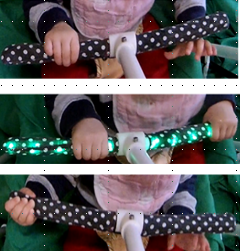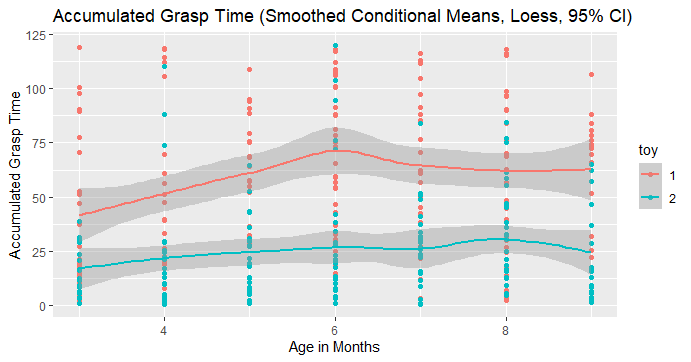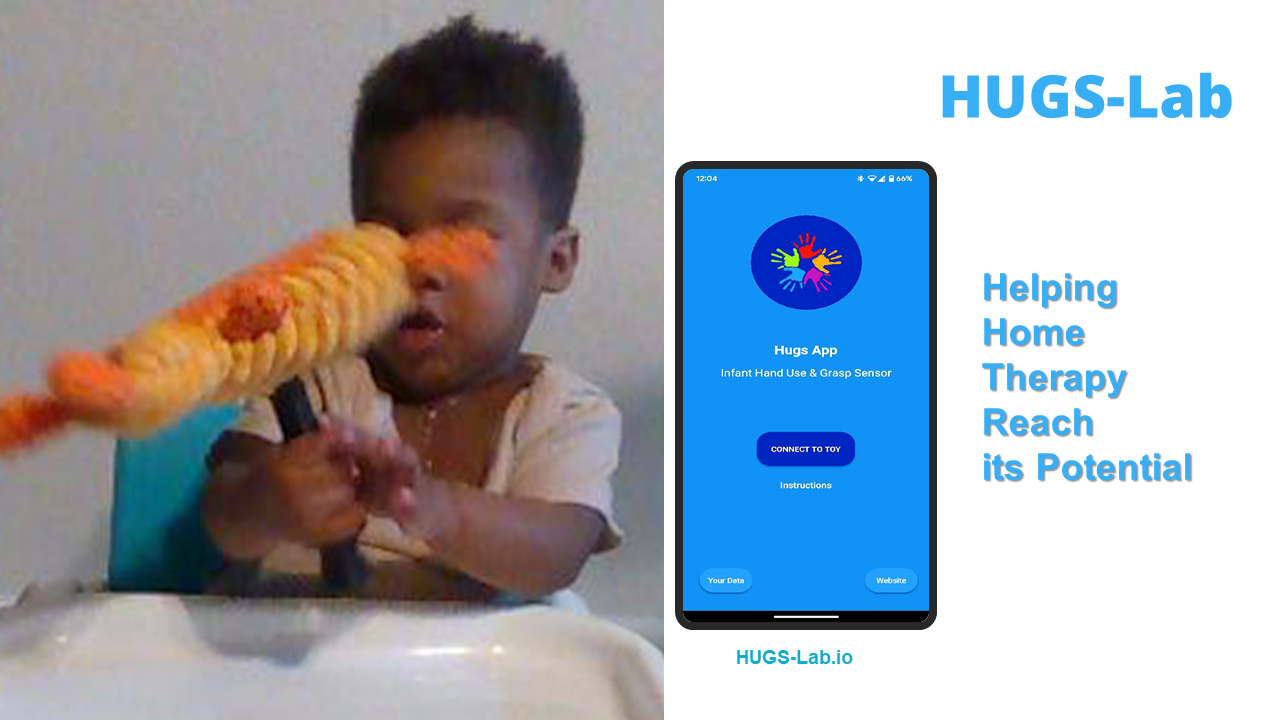

Pattern identification requires gathering data at frequent intervals during the time of a baby's rapid development . The period of just one month can see an enormous amount of development in infants. The need to check in very frequently on what the baby is doing means that our work is most effectively done not in the clinic or lab, but in the baby's home with the help of parents and others who care for the baby. Home-based research means that parents (caregivers and, of course, babies themselves) are our partners. We obviously can do nothing without families' help (and we are very grateful for it!). It’s important for HUGS to capture highly accurate and reliable data but equally essential to make sure HUGS is easy and convent to use in the home.
Future Vision
The knowledge we are just beginning to acquire about the development of manual skills in infancy will translate to a range of smart toys that are routinely provided for every infant. Mom and dad monitor their fitness status on their smartphones with data streams coming in from their own wearable sensors. In the future, the youngest members of the household will have their own personal data streams popping up on mom and dad's dashboard as well. Among of these tracked wellness variables will be hand use and grasp development status.
Join Us!
HUGS-Lab is the infant technology development group formed at CUA as a result of the infant hand use reasearch done under the RERC-DC. We are working under the mentorship of the IMPACT Center at the University of Pittsburgh to better understand the challenges and rewards of delivering therapy to infants in the home. The technologies we develop are of no use if they don't address the real needs and priorities of the people working in partnership to make home therapy the best it can be: therapists, families, and, of course, babies themselves!

